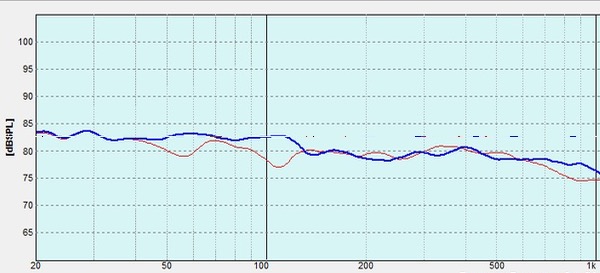It's such as you wrote the guide in it or something. concrete contractors richmond va
How I Put Audyssey Room Correction to Work for Me

High frequency issues, such as excess reverberation or even more serious problems such as sound bouncing off tile floors or one or more walls of windows, can be hard to treat. But they can minimized though not always in a domestically acceptable manner. If you love your shiny tile floors you might object to covering them with a thick carpet. If you love that open, full-wall view from your 50th floor Manhattan penthouse, hanging heavy drapes might be followed by divorce papers. You’ll find no shortage of help claiming that this sort of room isn’t a problem, and if you only spend gobs of cash for the right speakers, which they’re only too ready to sell you, the problems will go away. They won’t. Some situations will be intractable unless you’re willing to accept that you’ll need to add acoustic room treatments of some sort—or move.
Problems in the bass, roughly below 400-500 Hz, are different. They arise largely from reflections between adjoining walls, setting up standing wave patterns that interact to produce peaks, dips, and even nulls in the response. These cause the bass response to vary in different parts of the room. Some rooms have fewer such problems than others, depending on their shape and dimensions, but few of the rooms any of us are likely to live in are totally free of them.
The most obvious treatment for these bass issues is carefully and tediously repositioning the speakers and the listener to positions that minimize these modes at the listening position. But in most domestic situations, where the furniture “must go here,” or in a home theater setup where the screen’s location is fixed and the speakers must be positioned to support the picture, your flexibility is limited. You can’t have the screen on the front wall, the main speakers on the left side of the room, and the listening seats on the right! That’s one among many reasons why separate subwoofers, which are non-directional up to a point, are useful; they allow the main speakers to be located where they have to go while putting the subs wherever they perform best. But positioning subwoofers for the optimum result (and more than one are desirable for reasons beyond the scope of this blog) is a major topic in itself.
Physical room treatments that can deal with bass, such as bass traps, are generally too large to be practical in a home situation. But electronic equalization, or room EQ, is a friendlier solution, though not a perfect one (there’s no such thing as perfection—in audio or anything else).
Various types of manual- or computer-adjustable graphic and parametric equalization exist, but require considerable skill and test tools to use properly. You can’t do room EQ by ear, though that hasn’t stopped fools with graphic equalizers from trying to do so over the years (including me, at a more naïve age).
But there are three popular forms of room EQ available to users with at least minimal technical skills: Dirac Live, Anthem Room Correction (ARC), and Audyssey. All come with the needed microphones. The first two require a home computer of some sort, but Audyssey doesn’t. (There are other room EQ formats as well, but they’re generally either proprietary, such as from Yamaha and Onkyo/Integra, or found in crushingly expensive products from the likes of Trinnov and JBL Synthesis).
I have no experience to date with Dirac Live, and limited experience with ARC in Paradigm subwoofers and Anthem’s premier 2-channel integrated amplifier (the latter reviewed recently by editor Al Griffin and by yours truly in the July 2018 issue of Stereophile.
Audyssey Put to the Test
The Marantz surround preamps I’ve used for the past three years offer Audyssey, which I used only briefly in the past on the AV8802A. But the new AV8805, now in my system, offers it as well, together with a new feature allowing the user to limit the top end equalization to any preferred frequency. But for this test I used it full range. Even then, however, the before and after results differed little above about 1 KHz (which is why the results depicted below only show the results up to that frequency).
Audyssey is intended to not only improve the room response but to do so at a range of seating positions. For that purpose it takes a number of readings (typically 8) in different seats and provides an averaged, single correction. For this test, however, I tightened up the positioning to remain within a foot or so of my ears at the main listening position—a more audiophile-centric approach. Give me the best the system can do at the “money seat.”
The responses shown here were achieved with the standard Audyssey microphone that comes with the Marantz AV8805. No computer is required (the computations are performed inside the Marantz). But the results shown here were taken with the Omnimic measurement system from Parts Express (which does use a PC), together with the dedicated Omnimic microphone. The initial, Audyssey-miked measurements used the standard Audyssey 8-position average, but the results shown here were taken at a single position at the main listening seat (my measurements have shown that averaging several measurements reasonably close to the listening position differ little from the single measurement, at least in my room).
What did I achieve? A great deal. But my very large room is so resistant to producing deep bass that I also had to add a boost from the Marantz’ bass control on top of Audyssey’s curve to keep the final result from sounding too thin. That boost is included in the measurements shown here. (Interestingly, these measurements showed that the Marantz’ bass control, at least with Audyssey engaged, raises the overall bass range more or less equally, rather than providing a progressively higher boost as the frequency drops as do most bass controls). The non-equalized "before" responses are shown on top in Fig. 1, and the "after" results in Fig. 2 (left channel in red, right channel in blue).


Two subwoofers were used in the curves shown. The equalization did help when the speakers were used full range without the subwoofers, improving on their already respectable pre-EQ performance. But it would be wise to use caution when pushing full-range speakers this hard (Audyssey plus bass boost) in a very large room. This could overdrive all but the largest speakers without a subwoofer, a problem I did experience here when I tried the result, sans subs, on the most demanding music tracks.
Adding a subwoofer (or two, as I did here) helps considerably in limiting the strain on full-range speakers. But even then I’d take care in viewing the responses shown here, reaching down to 20 Hz, without reservations. As you can see on the vertical scale, the output levels for the measurements were well under 85 dB — a tepid bass level in a movie where civilization is blowing up all around you. All but the most robust subwoofers will beg for mercy with the EQ pushing them this hard on such material in a big room.
If your room is large, at say over 5,000 cubic feet, a wise precaution would involve putting the deepest bass-heavy passage you can find on repeat. Start playback at a low level and increase it gradually until you hear signs of distortion. Generally this will resemble…um…flatulence well before you hear mechanical rattles. It’s also possible that the subwoofer amp will clip -before the driver bottoms out, or that it offers built-in limiting to prevent the worst from happening. Back off a bit and that’s as high as you should listen.
What’s the solution if this isn’t loud enough? Reduce the bass by backing off on bass emphasis you’ve added, if any, to the room EQ’ed response. Then reduce the level of the subwoofer(s), or find a way to roll it (them) off below a suitable low frequency, perhaps 30 Hz. If your sub offers the option of a ported or sealed setup, and you’ve been using it ported, change it to sealed and re-run Audyssey. Or get more, or better, subwoofers. Or a smaller room!
Audyssey could do with an update, but to offer everything I’d like to see would require more processing power than is currently available in a surround preamp or AV receiver. That means having an external computer do all the calculations (as in Dirac Live and ARC) and then loading the result into the AVR or surround preamp. This offers the sophistication of having more than one target curve stored in the computer, with the ability to reload curves at will.
I’ve rarely use room EQ in speaker reviews for obvious reasons, and then only when it’s for a specific purpose and clearly identified as such. I’ll continue to do the same in reviews going forward. But if your system includes room EQ and you haven’t used it, it’s worth a try.
- Log in or register to post comments

In "How I Put Audyssey Room Correction to Work for Me," the author shares their experience using the technology to enhance audio quality in their home. Much like the fun of the Dinosaur Game, which creatively distracts you during offline moments, Audyssey transforms your listening experience, ensuring optimal sound tailored to your environment. It's a worthwhile investment for any audiophile looking to elevate their setup.

Generally I don’t read post on blogs. concrete contractors san jose

I was reading the news. concrete contractors sacramento

I'm definitely going to look into it concrete contractors las vegas

The net explaining everything in detail. concrete contractors los angeles

I started doing this way before reading this blog. concrete contractors denver

You’re the only one that ever did that. concrete contractors tallahassee fl

I should make this blog interesting. concrete contractors fort myers

you provided me the correct information concrete contractors west palm beach

You wrote something that people could understand. concrete contractors st petersburg fl

Nice job, I really like how your site looks. bathroom remodeling san francisco

Hoping to see more of this posts in the future!
bathroom remodeling san diego

It's a amazing work as well as idea. kitchen remodeling san diego

I'll be looking forward to more of your posts. bathroom remodeling phoenix

Wow, that's a lot of info! I've always wondered about room acoustics, especially in smaller spaces. It's crazy how much a room's shape and materials can affect the sound.
I guess the key takeaway is that there's no magic solution for every room. Sometimes, we just have to compromise between aesthetics and acoustics.
Thanks for sharing your expertise! It's definitely food for thought for anyone setting up a listening space.

Last time I visited there's just a couple of posts. kitchen remodeling san francisco

I look forward to more practical entries like this. kitchen remodeling phoenix

I'll provably come back when I can contribute a more decent comment.
kitchen remodeling albuquerque

Cheers for informing me! bathroom remodeling san antonio

I precisely had to thank you so much yet again. bathroom remodeling houston

Thanks a lot for providing individuals with a very pleasant possiblity to discover important secrets from this site. kitchen remodeling new orleans

I appreciate you writing this article. kitchen remodeling st louis mo

A lot of people will be benefited from this writing. bathroom remodeling st louis mo

Thanks for sharing this information, it gives us an idea as well. screen installation

It is the most explanatory article I have ever read, it really shares useful information. I also struggled a lot with these speaker settings in the past, I hope you get results as soon as possible.bloxd io

Wow, I actually had to bookmark a site! this is a first. Keep it up. kitchen remodeling orlando

Keep doing your great job and always gain my support. bathroom remodeling orlando

Fantastic precise info and this is one of the most nice blogs I've read in a very long time. kitchen remodeling tampa

Discover a ministry church focused on faith, worship, and service. Join a community committed to spreading God’s love and transforming lives. Experience the warmth of a ministry church that inspires faith and fosters connection. Together, we grow in spirit and purpose.

This post is packed with valuable information. I enjoyed it so much that I had to read it twice. Great job!
learn hebrew beginners

Your post is informative. Thank you for this. emergency electrician central coast

And all those hours have been fruitfully devoted to learning new things. kitchen remodeling richmond va

I thought I could never understand how this works but your explanation is so plain. bathroom remodeling richmond va

You practically stated me just what I opted to listen to and then some. kitchen remodeling tucson az

David almost always kept babbling on this. bathroom remodeling tucson az

depredate as well as I'm indubitable many people suavity any much less anyhow.
kitchen remodeling san jose ca

It makes things a bit more vibrant and some wish that not all in this world tend to be evil and terror, continue cheering us up. bathroom remodeling san jose ca

We regards for the post. kitchen remodeling sacramento ca

Such smart work and reporting! bathroom remodeling sacramento ca

Thanks for taking the time to share this great content here. screen repair

I wanted to thank you for this informative analysis of the subject. Roofers Bergen County

Thanks for this nice effort which you put here in the shape of this post.
Roofers Westchester NY

This is a good blog, it teach me many things. Roofers Staten Island

I like the part where you say you are doing this to give back. Roofers Seattle

I really bookmark it for further reading. Roofers Buffalo NY

Keep blogging. Roofers Rochester NY

I found some interesting things in here that I might use for future references.
Roofers Omaha

I have to thank you such an article. Roofers Harrisburg PA

Thanks for the information you shared here. Tree Trimming

all people you actually know what you are talking approximately! Roofers Cleveland

It's really nice sit you got going!
Roofers Boston

Many thanks for making the effort to discuss this. Roofers Albany

I put a link to your blog at my site. Roofers Baltimore

I just shared this post to my Fb account. Roofers Detroit

Way to go for keeping us updated daily. Roofers Akron

I have really enjoyed reading your entries.
Roofers Philadelphia

Thank you for sharing this post, it is truly insightful and informative. Underfloor Heating Repair Company London

Actually Excellent. Roofers Los Angeles CA

Thanks for sharing this great content. brick mailbox

Another thing I’d really like to say is that getting hold of duplicates. Roofers Tampa FL

This is insightful. It gives us the right information on the product. Underfloor Heating Repair Company

Ju mund te shihni Big Brother VIP Albania Live Falas nepermjet websitit: https://bigbrothervipalbania.cc/

We accept digital printing, photocopying and binding services, visit us at
Cetak Buku

We accept digital printing, photocopying and binding services, visit us at Fotocopy Garuda Rawamangun






























































